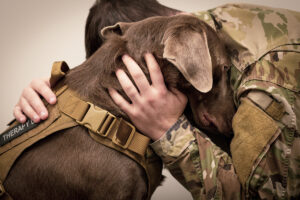Animal Communications
 Animal Communication is a GOD-given gift to be able to hear animals and in turn to speak with them telepathically. Animal communicators have many ways of connecting with animals. The most common ways of communicating are knowing, hearing, seeing, feeling, and tasting. Every person that is born on this earth has the ability to communicate telepathically with animals and humans, but they do not always recognize this gift, or they are told at a young age that they are being silly and to stop pretending to communicate in this manner. This skill takes a great deal of time, effort and continued dedication to develop and maintain. It is a very valuable skill and is sought after by people all over the world.
Animal Communication is a GOD-given gift to be able to hear animals and in turn to speak with them telepathically. Animal communicators have many ways of connecting with animals. The most common ways of communicating are knowing, hearing, seeing, feeling, and tasting. Every person that is born on this earth has the ability to communicate telepathically with animals and humans, but they do not always recognize this gift, or they are told at a young age that they are being silly and to stop pretending to communicate in this manner. This skill takes a great deal of time, effort and continued dedication to develop and maintain. It is a very valuable skill and is sought after by people all over the world.
Ethics Involved in Animal Communication

Ethics are of the utmost importance with animal communication. I will only communicate with animals that have had the permission of their people (people that control their fate) to speak with them. That may seem like it’s not a big deal to most people, but it’s a huge deal. It is critical to know exactly why it is so important. Animals really extend their trust when they agree to communicate with a person and they put themselves out there. It is very important to uphold that trust and be able to truly entertain their concerns and wishes. If I were to communicate with an animal that was in deep distress about a situation and really asked for a solution, and their person did not allow the communication and/or was not willing to entertain their animal’s wishes or at least understand them and explain why the situation cannot resolve in the animal’s proposed manner, the animal would be left in a worse situation and they would feel stranded and not willing to trust in communication again. This situation is extremely stressful to the animal and the communicator and is unfair to both parties. Clients that wish to communicate with their animals must commit to fully hearing their animal and be willing to find amicable solutions to topics that are discussed. I fully believe in and uphold the ethical guidelines developed by Penelope Smith and Nancy Windheart

